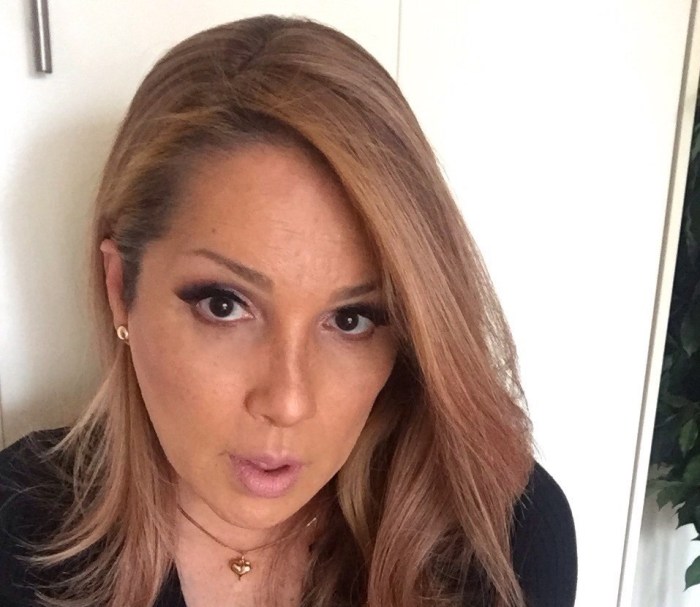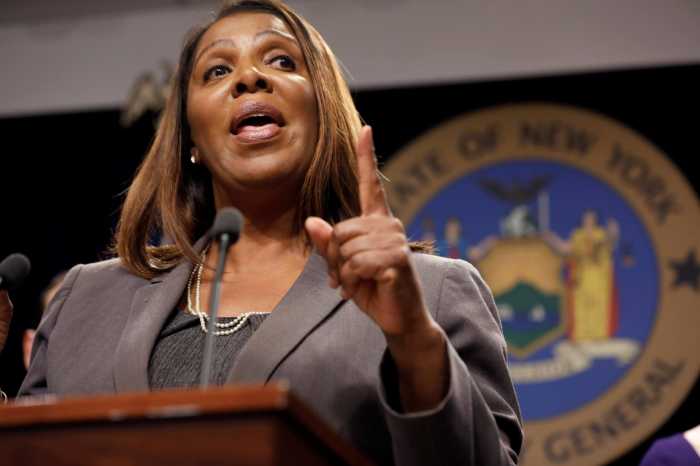When Saudi Arabia informed the international body responsible for approving Internet domain name suffixes that it opposed the creation of a .gay category, the kingdom’s pervasive controls on the media and the anti-gay violence sanctioned by its influential clerics were once again underscored.
Given the Saudi record on these fronts, its protest was hardly surprising. The response from important voices in Europe’s LGBT community and from the international media, however, should sound alarm bells.
According to a BBC report, a spokeswoman for the UK’s Lesbian and Gay Foundation said, “Sites under .gay would be carefully regulated and would not ‘promote homosexuality’ but offer crucial support.”
In other words, the foundation was not only abandoning cherished notions of free speech on the worldwide web, but also appears to be running scared from its mission –– namely, to promote LGBT rights and sexual freedom.
Europe being Europe, there is unfortunate precedent for the capitulation to the Saudi kingdom’s dictates. Germany’s out gay foreign minister, Guido Westerwelle, after all, defended his decision to not bring his husband Michael Mronz to Saudi Arabia in 2010, saying, “We want to encourage the idea of tolerance around the world, but we don’t want to achieve the opposite either by acting imprudently.”
Has a form of soggy cultural relativism –– where reluctance to challenge non-Western cultural practices at times controls the posture taken on human rights –– blinded some European LGBT communities and publications?
Let’s be clear about what’s at stake. The Saudi regime has responded to homosexual conduct with harsh violence, including the death penalty. When Ali Ahmad Asseri, a gay man working at the Saudi Consulate in Los Angeles, applied for political asylum in the US in 2010, he told immigration officials that he feared execution if he were returned to his homeland.
In 2005, the Guardian’s Brian Whitaker wrote, “Dozens of Saudi men caught dancing and ‘behaving like women’ at a party have been sentenced to a total of 14,200 lashes, after a trial held behind closed doors and without defense lawyers. The men were also given jail sentences of up to two years.”
A Saudi newspaper termed the party in the city of Jeddah on the Saudi Red Sea coast a “gay wedding,” a characterization used repeatedly throughout the Middle East and Africa to stoke anti-gay fears.
According to Whitaker and other sources, the most recent documented executions for homosexuality in Saudi Arabia occurred in 2002.
A news dispatch on the UK’s Pink News website was headlined “Saudi government objects to ‘.gay’ domain name endings,” but made no reference to the kingdom’s history of lethal homophobia and torture. (Full disclosure: I have written news dispatches for Pink News). A CNN report — on the same day the Pink News article appeared — ran the headline “Saudi Arabia objects to .gay and .islam domain names,” but like the British gay newspaper provided no context on Saudi Arabia’s reactionary anti-LGBT policies.
CNN and Pink News seemed to take at face value the cynical Saudi reasoning behind its opposition to .gay domain names. Both news organizations quoted the kingdom’s assertion that such domain names could be used to host pornographic websites and that “pornography undermines gender equality and threatens public morals.” The fact that these news organizations made no effort to critically examine the laughable assertion that Saudi Arabia has any regard for gender equality fails even the most basic standards of journalistic practice.
A recent study by two of my Foundation for Defense of Democracies colleagues rigorously documented the gender discrimination and anti-gay bigotry of the kingdom. According to FDD’s Dr. Jonathan Schanzer and Steven L. Miller, “The Permanent Committee for Research and Ifta, one of the kingdom’s highest religious bodies, suggested in December 2011 that repealing the Saudi ban on female driving could ‘provoke a surge in prostitution, pornography, homosexuality, and divorce,’ predicting that in ten years, there would be ‘no more virgins.”
Schanzer and Miller, working over a six-month period with ConStrat, a Washington-based web technology and analytics company, “collected and analyzed more than 40,000 social media entries in both English and Arabic” posted by Saudi clerics and their followers. The eye-popping result: “Alarmingly, of the thousands of messages ConStrat scored, 75 percent could be described as xenophobic, bigoted, or openly hateful.”
The study also noted that Saudi high school textbooks “call for homosexuals to be put to death because they pose a danger to society.”
Bruce Bawer, a bestselling American gay author, has been scathing in his indictments of homophobia in majority-Muslim countries and, noting the fact that most 9/11 terrorist were Saudis, pointed to the “bipartisan disgrace” of US leaders who “have bent over backwards to send out the message that the Saudis are our friends.”
Still, Secretary of State Hillary Clinton’ s speech last December to the United Nations Human Rights Council (UNHRC) in Geneva, the strongest American assertion to date that LGBT rights are human rights, offered hope for a shift in the US posture.
“Being gay is not a Western invention; it is a human reality,” Clinton said. “And protecting the human rights of all people, gay or straight, is not something that only Western governments do.”
Sadly, a little more than six months after Clinton spoke, Omar Shalaby, Egypt’s top diplomat to the UNHRC, said, “Finally, concerning the highly controversial notion of sexual orientation, we can only reiterate that it is not part of the universally recognized human rights.” He continued, “We call on Mr. [Maina] Kiai [the UN’s special rapporteur on freedom of peaceful assembly and association] not to undermine the credibility and legitimacy of his important work in the eyes of real people who actually need it, especially in regions where such concepts are rejected by both its Christian and Muslim inhabitants like the Middle East.”
It is sad, indeed, that more than a year after Cairo’s Arab Spring, an Egyptian diplomat would so faithfully mirror Saudi Arabia’s virulent homophobia.
Sadder still was the fact that a UNHRC spokesman could not muster the wherewithal to unambiguously condemn Shalaby’s remarks, telling Pink News simply, “The Human Rights Council is an intergovernmental body which provides a space for a wide range of views from states, NGOs, civil society, and other participants. The comments made by the Egyptian delegate on 21 June during a discussion on a report of the special rapporteur on peaceful assembly, Maina Kiai, expressed the views of the Egyptian delegation, and should certainly not be interpreted as an endorsement by the Council as a whole.”
Like the recent reactions from the UK’s Lesbian and Gay Foundation and media outlets worldwide to the unembarrassed Saudi attack on Internet freedom and LGBT self-expression, this sort of statement from a UN human rights spokesman is shockingly weak-kneed. For those who care about the rights and protections of queer people across the globe, all this should come as a rude wake-up call for dramatic change.
Benjamin Weinthal is a Berlin-based journalist who reports on LGBT issues in Europe and the Middle East for the Jerusalem Post and is a fellow at the Foundation for Defense of Democracies.


































